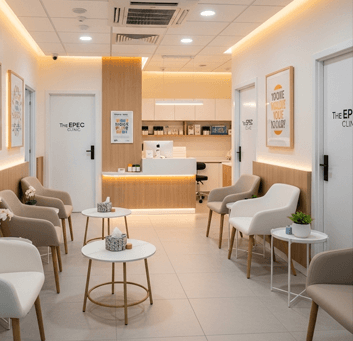Will We Ever See the End of the Revolving Door
- Author
- Nov 18, 2024
- 2 min read

The "revolving door" of addiction and relapse can feel like a never-ending cycle for many individuals and their loved ones, but it’s possible to move toward solutions that break this cycle. Ending the revolving door requires addressing addiction holistically and focusing on systemic, personal, and societal changes. Here’s what it takes:
1. Improved Access to Comprehensive Treatment
Integrated Care: Addressing both substance use disorders and co-occurring mental health conditions is essential. Treating one without the other often leads to relapse.
Affordable Treatment Options: Many individuals face financial barriers to accessing rehab, therapy, or medication-assisted treatment (MAT). Expanding access to affordable, high-quality care can reduce the cycle of relapse.
Long-Term Support Programs: Short-term rehab isn't enough for most people. Continuous care models, including outpatient programs, sober living environments, and follow-up counseling, are critical for long-term success.
2. Early Intervention and Prevention
Education: Teaching people—especially youth—about the risks of substance use and how to manage stress and emotions without substances can reduce the likelihood of addiction.
Screening and Early Help: Catching substance use disorders early, through routine screenings in healthcare or community settings, can prevent escalation.
3. Reducing Stigma
Shifting Perceptions: Addiction must be recognized as a medical condition, not a moral failing. Reducing stigma encourages people to seek help without shame.
Community Involvement: Supporting individuals in recovery through inclusive employment opportunities, housing, and community programs can help them reintegrate into society and avoid relapse.
4. Personalized and Evidence-Based Approaches
Tailored Treatment Plans: Recovery is not one-size-fits-all. Customizing treatments to fit an individual’s needs (e.g., MAT, trauma-informed care, culturally sensitive therapies) improves outcomes.
Focus on Underlying Causes: Many people use substances to cope with pain, trauma, or unmet emotional needs. Addressing these root causes through therapy or support groups can help break the cycle.
5. Building Resilient Support Systems
Family and Peer Support: Addiction affects entire families. Family therapy and peer recovery groups can provide crucial support to those in recovery.
Recovery Communities: Strong networks like 12-step programs, faith-based recovery groups, or secular organizations (like SMART Recovery) can reduce feelings of isolation and provide ongoing motivation.
6. Policy Changes
Criminal Justice Reform: Shifting from punitive approaches to addiction (e.g., incarceration) to treatment-focused alternatives (e.g., drug courts, diversion programs) can help break the cycle of relapse and reoffending.
Harm Reduction: Programs like needle exchanges, supervised injection sites, and access to naloxone save lives and provide opportunities to engage individuals in recovery.
7. Understanding Relapse as a Process, Not Failure
Relapse Prevention Training: Teaching individuals how to recognize early warning signs and use coping strategies is key.
Accountability Without Shame: Creating systems of accountability, such as regular check-ins with counselors or sponsors, can help people recover without feeling judged.
Will We Ever See an End?
While addiction and recovery will always be complex, significant progress can and has been made with advancements in science, shifts in public perception, and systemic improvements. The end of the revolving door may not mean that relapse never occurs, but rather that fewer people fall through the cracks, more people receive effective help, and communities better support sustained recovery.
Change is happening, and with continued efforts, the revolving door can slow, allowing more people to find lasting freedom from addiction. Online suboxone clinic Rosedale, MD and Online Suboxone Doctor Dundalk, MD. Contact us now for online suboxone appointment.




Comments